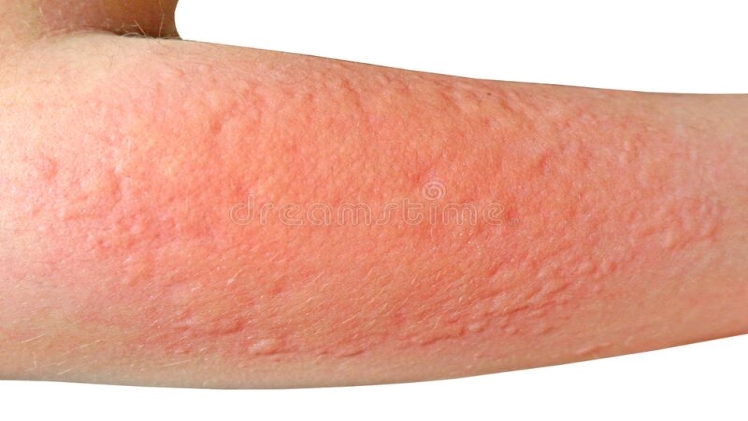When your body has an adverse reaction to a foreign substance, such as pollen, pet dander, or dust. When these substances come into contact with your body, your immune system kicks into gear and releases histamines.
Common symptoms
The chemicals that cause the familiar symptoms of an allergic reaction. These can include watery eyes, runny nose, sneezing, and itching.
The reaction can be more severe, causing difficulty breathing, swelling of the throat or tongue, hives, or even anaphylactic shock. If you suspect that you have an allergy, it’s important to see a doctor for a proper diagnosis. With proper treatment, most people with allergies can lead relatively normal lives.
How do you know if you’re have an allergic reaction?
Well, there are a few tell-tale signs which can help you’re having an allergic reaction
Skin problem
First of all, you’ll likely experience some kind of itching or burning sensation. Your skin may also become red and swollen. You may also develop a rash or hives.
Difficulty breathing
If you’re having difficulty breathing, or if your throat feels tight, you should seek medical attention immediately, as these could be signs of a more serious reaction. If you’re not sure whether you’re experiencing an allergic reaction, it’s always best to err on the side of caution and consult with a medical professional.
What should you do if you having an allergic reaction?
Allergic reactions can range from mild to severe, and they can even be life-threatening. If you think you’re having an allergic reaction, it’s important to act quickly and seek medical help.
Identify allergy
The source of the allergy. If you’re not sure what you’re allergic to, or if you’re having trouble breathing, once you’ve identified the allergen, try to remove yourself from the exposure if possible.
Ventilate the area
If you’re outdoors, move away from the area where you think the allergen is located. If you’re indoors, open the windows and doors to ventilate the area.
Contaminated clothing
If you’re wearing any contaminated clothing, remove it as soon as possible.
Use cool water for several minutes
If your eyes are swollen or itchy, rinse them out with cool water for several minutes.
Use cool compress
And if your skin is red or swollen, apply a cool compress to the affected area. Once you’ve taken these steps, call your doctor or visit an urgent care facility for further evaluation and treatment.
FAQ’S
Can allergies be cured?
No, unfortunately there is no cure for allergies. However, there is app healthtap that can help to manage the symptoms and make life more manageable.
Do allergies go away on their own?
In some cases, yes. Children, for example, may outgrow their allergies to certain substances, such as milk or eggs. But in most cases, allergies are a lifelong condition.
Are allergies genetic?
Yes, allergies can be hereditary. If your parents or siblings have allergies, you’re more likely to have them as well.
What are the most common allergies?
The most common allergy headache include hay fever, pet allergies, dust allergies, and food allergies.
Conclusion
If you think you’re having an allergic reaction, it’s important to act quickly and seek online allergy Allergic reactions can range from mild to severe, and they can even be life-threatening. Once you’ve identified the allergen, try to remove yourself from the exposure if possible. And if you’re having difficulty breathing. With proper medical treatment, most people with allergies can lead relatively normal lives.

